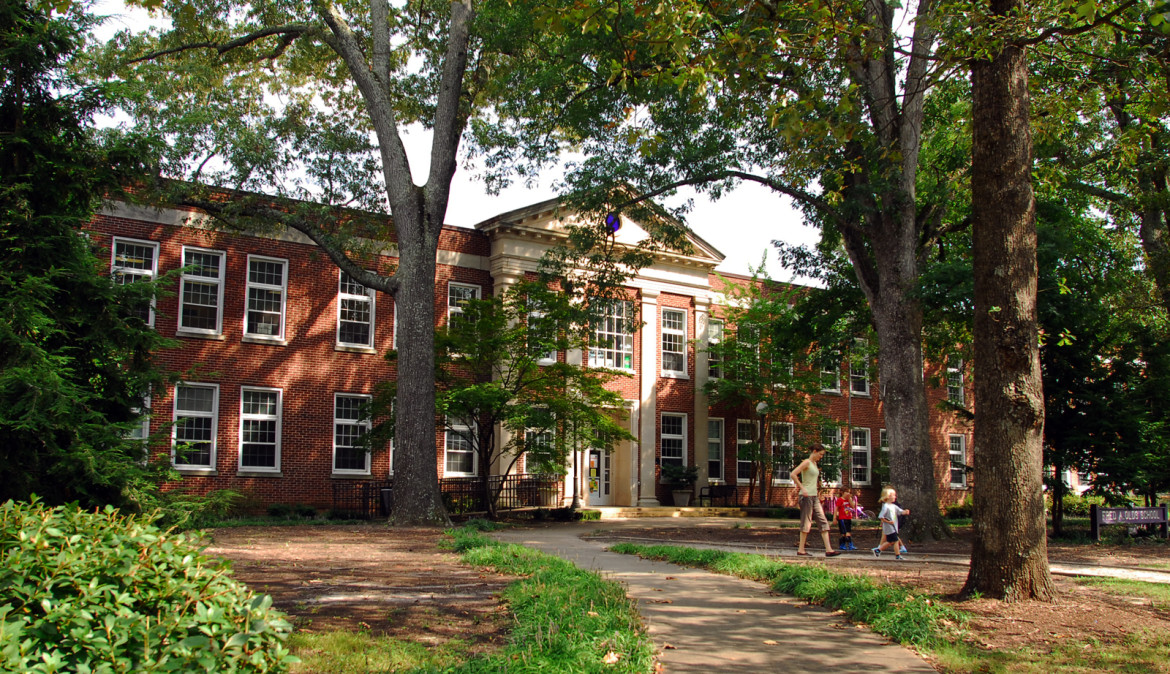The Wake County Board of Commissioners met Monday in a work session that explored the Wake County Board of Education’s focus areas for the 2015-2016 school year.

Karen Tam / Raleigh Public Record
Fred Olds School on Dixie Trail Road in Raleigh.
These areas contained a number of hypothetical situations to address serious problems within the Wake County Public School System, including new teacher retention, a lack of salary increases for established teachers, and a dearth of funding from the General Assembly.
Commissioner Ward noted that the state legislature seemed uninterested in solving many of these problems, including increasing teacher salaries.
“It bothers me considerably,” Ward said.
David Neter, the chief business officer for the Wake County Public School System, presented the information to commissioners and overviewed possible programs that would bolster the school system.
For the Pre-K programs for low income students, Neter showed an investment to serve 144 Pre-K students through four blended classrooms and 10 special education classrooms. The cost for such a program would be $1.4 million, around $9,700 per student.
“It gives you a type of investment needed to serve these students,” Neter said. He added, “Pre-K and special education students show a higher growth rate than the general student population.”

Wikimedia Commons
Title I Funding is a result of the Elementary and Secondary Education Act of 1965.
An elementary school support model was proposed. It would target 12 schools with performance gaps, and a superintendent, who usually oversees 25-30 schools, would be in charge of just those 12 schools. It would cost $3.8 million, but much of the money would come from Title I funding from the federal government.
Commissioner Burns talked about the high student turnover within schools and how it affects school performance. He stated that many parents simply say, ‘I just want my child somewhere else,’ and transfer the student to another school, which hurts school stability.
Commissioner Holmes talked about retention of teachers and possible economic incentives to keep teachers from leaving the classroom. Neter noted that teacher salaries in North Carolina were lagging behind the national average. The investment to close this gap would total $100 million.
“I would encourage you to do what you can,” Commissioner Burns said, “especially for those experienced teachers.”

Karen Tam / Raleigh Public Record
Anca Stephan of Cary, with mouth covered with a sticker declaring North Carolina school teachers are 46th in the country when it comes to salaries.
Commissioner Calabria proposed a multi-year plan to raise teacher salaries and Neter said that the commissioners would see that during the Superintendent’s Proposed Budget, which would be before the commissioners on April 7.
In addition to needing to raise teacher salaries, stipends for extra-duty positions—such as athletic coaches—had been the same since 1988, and support staff compensation had increased very modestly during the past six years. Recruiting bus drivers and retaining bus drivers was a problem due to marginal compensation and student disciplinary issues.
“What we have is a dedicated staff that is not doing it for the money,” Neter said of the extra-duty positions. He added that the governor had nothing in the budget to address the salaries of experienced teachers and that saying ‘it’s the state’s responsibility’ for any of these issues would lead to no progress.
